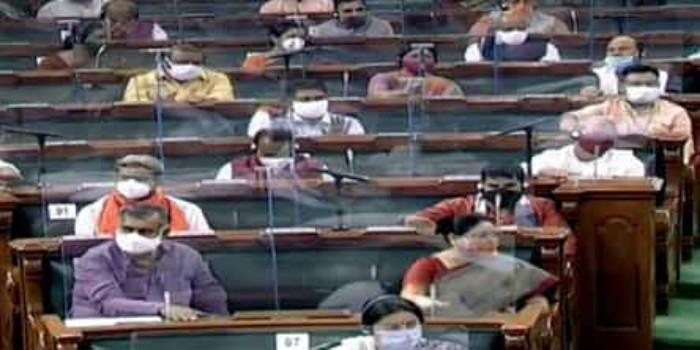The National Democratic Alliance (NDA) government has dropped hints to some opposition leaders that a closed-door meeting on the India-China border situation may be considered , after expressing its reluctance to engage in a full-fledged public discussion on the sensitive issue in the monsoon session of Parliament.
A final decision on any such meeting, where the opposition parties would be briefed on the military standoff along the Line of Actual Control (LAC), is yet to be taken, functionaries involved in the talks said. To be sure, the government has not contacted all opposition parties so far.
According to the proposal, which follows Opposition accusations that the government was shying away from a discussion on the issue in Parliament, the defence ministry brass may brief floor leaders of different parties behind closed doors on efforts to normalise the situation, and reply to queries they may have on the subject.
“A senior minister had called me to say that the government is thinking of a briefing meeting for floor leaders of different parties on the Indo-China situation if they agree. The proposal is at a nascent stage and needs further discussion,” said a senior non-NDA leader, requesting anonymity.
Adhir Ranjan Chowdhury, the Congress floor leader in the Lok Sabha, questioned the usefulness of such a meeting. He said: “If newspapers can discuss, public can discuss and everyone else can discuss, then why can’t Indian Parliament discuss such a situation?”
Defence minister Rajnath Singh read out a statement in Lok Sabha on Tuesday on the Indo-China border situation, but opposition leaders were not allowed any seek any clarifications. Angry Congress leaders, including Chowdhury and Shashi Tharoor, staged a protest in front of the Mahatma Gandhi statue in the Parliament complex.
Government managers maintained that at this stage, when India and China are trying to resolve the situation, an open debate marked by conflicting views and criticisms is best avoided.
Chowdhury reminded the government that in 1962, when then Opposition leader Atal Bihari Vajpayee had demanded a debate on the Indo-China war, Prime Minister Jawaharlal Nehru agreed to hold a debate that went on for two days. Parliamentary affairs minister Pralhad Joshi quickly pointed out that the 1962 debate took place after the war was over and not when the two sides were trying to find a solution.
Other leaders, including the Biju Janata Dal’s Pinaki Mishra and Trinamool Congress’s Kalyan Banerjee, did not support Chowdhury. Banerjee took the stand that the party wanted to hear what the minister had to say before taking a decision. Mishra agreed with the government’s point of view that a divisive debate must be avoided.
Minutes before the Parliament session started on Monday, Prime Minister Narendra Modi spoke about the situation and added that he expects the House to send out a unanimous message of solidarity with the armed forces.
“Today the brave soldiers of our army are on the borders. They are defending the borders with great courage and high spirits, in the difficult terrains,” he said.
“The entire House stands with the brave soldiers of the country with one voice; I believe that this House and all the honourable members. too, will give out a very strong message,” Modi said.




